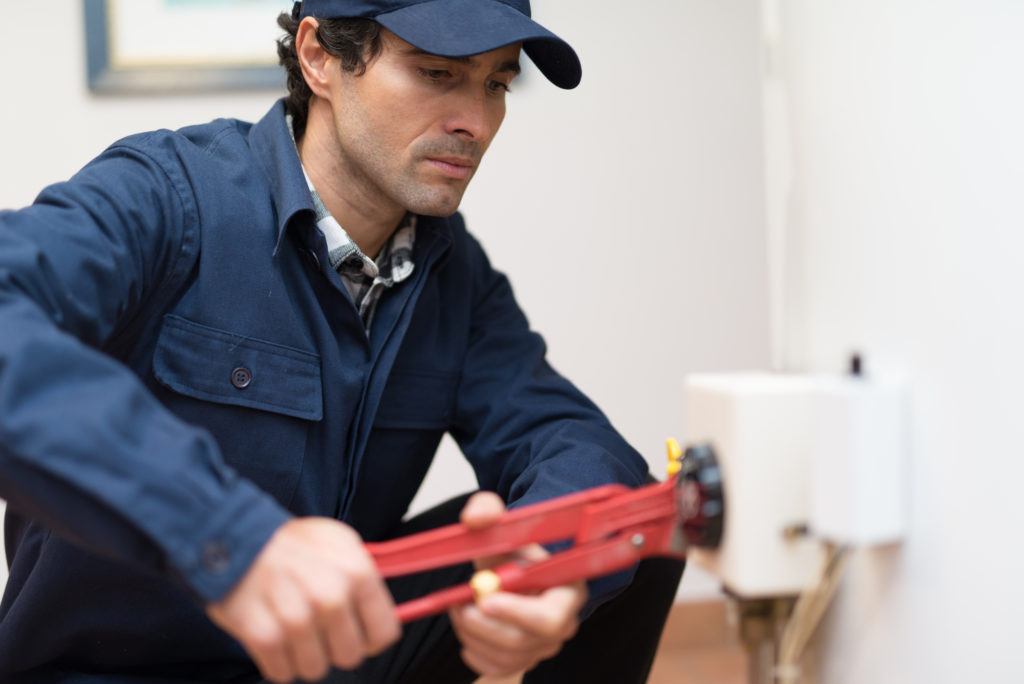Dealing With Common Water Heater Challenges
Dealing With Common Water Heater Challenges
Blog Article
On this page down the page yow will discover a good deal of first-rate news around Common Problems with Tank Water Heaters.

Picture beginning your day without your regular hot shower. That already sets a poor tone for the remainder of your day.
Every house needs a trustworthy hot water heater, yet only a few understand just how to take care of one. One easy means to keep your hot water heater in leading shape is to check for mistakes on a regular basis and repair them as quickly as they appear.
Bear in mind to turn off your hot water heater before smelling about for mistakes. These are the hot water heater mistakes you are more than likely to run into.
Water also hot or also cold
Every hot water heater has a thermostat that determines how hot the water obtains. If the water coming into your home is too hot despite setting a practical maximum temperature, your thermostat may be defective.
On the other hand, as well cold water might result from a stopped working thermostat, a busted circuit, or inappropriate gas circulation. For instance, if you use a gas water heater with a damaged pilot burner, you would get cold water, even if the thermostat is in best condition. For electrical heating units, a blown fuse might be the culprit.
Not nearly enough warm water
Hot water heater been available in several sizes, depending upon your warm water needs. If you run out of hot water prior to everyone has had a bath, your hot water heater is as well little for your family size. You must think about setting up a bigger hot water heater storage tank or opting for a tankless water heater, which takes up much less area and is a lot more sturdy.
Odd noises
There go to least five type of noises you can hear from a hot water heater, however the most common interpretation is that it's time for the hot water heater to retire.
First off, you ought to be familiar with the normal appears a hot water heater makes. An electrical heating system may appear different from a gas-powered one.
Popping or banging audios generally indicate there is a slab of sediment in your containers, and also it's time to cleanse it out. On the other hand, whistling or hissing noises may merely be your valves letting some pressure off.
Water leaks
Leakages can originate from pipes, water links, valves, or in the worst-case scenario, the container itself. Over time, water will certainly wear away the container, and locate its escape. If this takes place, you require to replace your hot water heater immediately.
However, before your adjustment your entire tank, be sure that all pipes are in area and that each valve functions flawlessly. If you still require aid recognizing a leakage, call your plumber.
Rust-colored water
Rust-colored water suggests one of your hot water heater components is corroded. It could be the anode rod, or the tank itself. Your plumber will certainly have the ability to identify which it is.
Warm water
Regardless of exactly how high you set the thermostat, you won't get any hot water out of a heating system well past its prime. A hot water heater's effectiveness may lower with time.
You will certainly likewise get lukewarm water if your pipelines have a cross connection. This suggests that when you switch on a faucet, hot water from the heating unit streams in along with regular, cold water. A cross connection is very easy to spot. If your hot water taps still follow shutting the water heater valves, you have a cross link.
Discoloured Water
Corrosion is a significant source of filthy or discoloured water. Deterioration within the water storage tank or a stopping working anode pole might trigger this discolouration. The anode pole safeguards the storage tank from rusting on the within as well as need to be checked yearly. Without a pole or a correctly operating anode pole, the hot water swiftly wears away inside the tank. Contact an expert hot water heater technician to identify if changing the anode rod will certainly take care of the trouble; otherwise, replace your water heater.
Conclusion
Ideally, your water heater can last 10 years before you require an adjustment. Nonetheless, after the 10-year mark, you might experience any of these faults more consistently. Now, you must add a new hot water heater to your budget plan.
How To Troubleshoot 3 Common Water Heater Problems in Twin Cities
The Water Heater Is Leaking
A leaky cold water inlet valve A loose pipe fitting A leaky temperature and pressure relief valve A corroded anode rod A cracked tank Turn Off Your Water Heater:
Shut off your gas water heater by turning the gas valve on the unit to the “OFF” position. Shut off your electric water by switching its power off at your electrical panel. Look for a two-pole breaker labeled “water heater” and turn it to the “OFF” position. Move the ball valve connected to the water heater to be perpendicular to the piping at a 90° angle. Look for the Leak:
Depending on whether the water is coming from the tank's top or bottom, you’ll want to look for the leak in different locations.
If the leak comes from the top of the tank, carefully look for water escaping from the cold water inlet valve or loose pipe fittings. Rusted hot and cold water valves can have loose connections with the tank, with water leaking out of them.
https://mspplumbingheatingair.com/blog/how-to-troubleshoot-3-common-water-heater-problems
As an enthusiastic person who reads about Common Problems with Your Home Water Heater, I figured sharing that piece of content was worth the trouble. Don't hesitate to take a moment to distribute this post if you appreciated it. Thank-you for going through it.
Professional touch for plumbing woes. Report this page